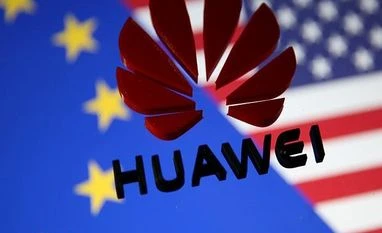So it came as a surprise last month when one of the world’s largest carriers, Britain’s Vodafone, said it was pausing some 5G investments in Europe. The decision stemmed from the roiling debate about the Chinese telecommunications giant Huawei, and uncertainty over whether European countries would ban the company from 5G networks because of national security concerns being raised by the Trump administration.
Vodafone’s decision involved only a small piece of its business in Europe, but shows how questions swirling about Huawei risk a cooling effect on the broader wireless industry. Even Huawei’s competitors have cautioned that the new uncertainty could harm business.
A blanket ban on Huawei, the world’s largest maker of telecommunications equipment, would have a “significant implication” for the wireless industry, and lead to a “significant delay” in the construction of new 5G networks, said Nick Read, Vodafone’s chief executive.
Huawei’s fate will hang over the wireless industry’s largest annual trade conference, MWC Barcelona, previously called Mobile World Congress, which starts on Monday. Typically a celebration of new handsets from Samsung, LG, Sony and other brands, this year’s conference in Spain is being overshadowed by less glamorous policy questions about how to safeguard the behind-the-scenes infrastructure that keeps those devices connected to the internet.
“Many operators are now delaying their 5G investments because there is so much uncertainty related to whether they can work with Huawei or not,” said Mikael Rautanen, an industry analyst with Inderes Oy, a research firm. “That affects the whole telecommunications sector.”
5G networks are considered critical to the future global economy, increasing mobile phone speeds by up to 20 times from the current 4G system, while also creating new applications in medicine, augmented reality and manufacturing. Telecom companies are starting to roll out the new systems this year, with wider adoption coming in 2020.
Huawei makes the antennas, base stations, switches and other gear that make the technology work.
The debate over Huawei is intense in Europe, where network operators that have long relied on the company’s equipment are facing potential new regulations. Britain, Germany, France, Poland and the Czech Republic are among those considering new restrictions against Huawei.
British and German authorities have indicated that a complete ban is unlikely.
© 2019 The New York Times News Service
To read the full story, Subscribe Now at just Rs 249 a month
Already a subscriber? Log in
Subscribe To BS Premium
₹249
Renews automatically
₹1699₹1999
Opt for auto renewal and save Rs. 300 Renews automatically
₹1999
What you get on BS Premium?
-
Unlock 30+ premium stories daily hand-picked by our editors, across devices on browser and app.
-
Pick your 5 favourite companies, get a daily email with all news updates on them.
Full access to our intuitive epaper - clip, save, share articles from any device; newspaper archives from 2006.
Preferential invites to Business Standard events.
Curated newsletters on markets, personal finance, policy & politics, start-ups, technology, and more.
Need More Information - write to us at assist@bsmail.in
)